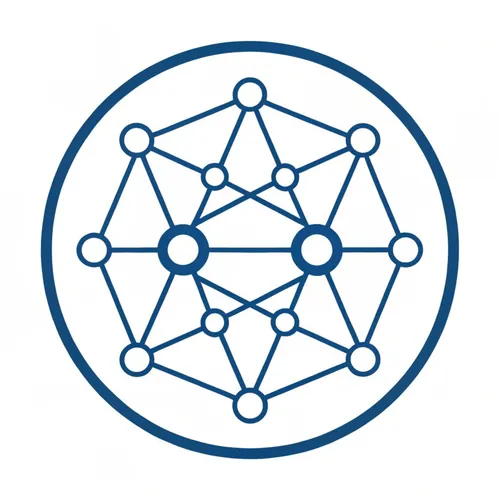
Neural intel Pod
🧠 Where AI Breaks Down AI
Join us as two AI experts break down the latest artificial intelligence research papers into digestible insights. Each episode transforms complex academic breakthroughs into clear, accessible discussions. We deliver episodes frequently, directly named after the papers we analyze, keeping you at the forefront of AI advancement without information overload. Perfect for anyone who wants to stay current with AI, ML and robotics.
Join the Community: Neuralintel.org
- Update frequency
- every day
- Average duration
- 24 minutes
- Episodes
- 274
- Years Active
- 2024 - 2025

Language Model Training for Social Deduction in Among Us
LLMs learn to lie, cheat and KILL in Among Us

Depth Pro Sharp Monocular Metric Depth Estimation
Sharp Monocular Metric Depth Estimation

MME-CoT Benchmarking Chain-of-Thought in Large Multimodal Models
Benchmarking Chain-of-Thought in Large Multimodal Models

Unsloth Efficient GRPO for Long-Context Reasoning Models
Efficient GRPO for Long-Context Reasoning Models

CoT-Valve Tunable Length Control for Chain-of-Thought Reasoning
Tunable Length Control for Chain-of-Thought Reasoning

Implementing Transformers from Scratch
Implementing a Transformer model from scratch is a great way to understand the architecture and its components in depth.

Reflection and Refraction
Reflection and Refraction are two fundamental phenomena of light that describe how light interacts with surfaces and different media.

MixGCN Scalable Graph Convolutional Network Training
MixGCN: Scalable Graph Convolutional Network Training by Mixture of Parallelism and Mixture of Accelerators is a novel framework designed to address the challenges of training Graph Convolutional Net…

Open-Source AI The Imperative for Transparency
The concept of Open-Source AI emphasizes the importance of transparency, collaboration, and democratization in the development and deployment of artificial intelligence systems. As AI becomes increas…

Forge Reasoning API and Nous Chat Advancing LLM Inference
The Forge Reasoning API and Nous Chat, developed by Nous Research, represent significant advancements in the field of large language model (LLM) inference. These tools aim to enhance reasoning capabi…

Gradient Equilibrium in Online Learning
Gradient Equilibrium in Online Learning is a novel concept introduced in the paper "Gradient Equilibrium in Online Learning: Theory and Applications" by Anastasios N. Angelopoulos, Michael I. Jordan,…

Encoder-Free 3D Large Multimodal Models An Investigation
Encoder-Free 3D Large Multimodal Models An Investigation

Intel and PyTorch Empowering Generative AI
Intel and PyTorch have formed a strong collaboration to empower Generative AI (GenAI) by optimizing PyTorch for Intel hardware, including CPUs and GPUs. This partnership focuses on enhancing the perf…

Iterative Prompting and LLM Code Optimization
Iterative Prompting and LLM Code Optimization is a process that leverages iterative refinement techniques to improve the performance of large language models (LLMs) in generating, understanding, and …

Everything You Always Wanted To Know About Mathematics
"Everything You Always Wanted to Know About Mathematics (But Didn’t Even Know to Ask): A Guided Journey Into the World of Abstract Mathematics and the Writing of Proofs" is a comprehensive textbook a…

The Instruct Monomyth_ Why Base Models Matter
The article "The Instruct Monomyth: Why Base Models Matter" by NOUS Research explores the philosophical and technical importance of base models in the development of large language models (LLMs). It …

DSJJJJ Desideratic AI and Mischievous Instability
The concept of Desideratic AI (DSJJJJ) and Mischievous Instability (MI) originates from a philosophical and experimental framework proposed by NOUS Research. It explores the creation of AI systems th…

Simplified PyTorch MLOps Workflow with Arm and GitHub
The Simplified PyTorch MLOps Workflow with Arm and GitHub is a collaborative effort between Arm and GitHub to streamline the machine learning operations (MLOps) lifecycle for PyTorch models. This wor…

UMed-LVLM_ Unveiling Medical Abnormalities in Vision-Language Models
The UMed-LVLM (Unveiling Medical Abnormalities in Vision-Language Models) is a novel framework designed to enhance the capabilities of Medical Large Vision-Language Models (Med-LVLMs) in detecting an…

Ploppie_ A LiteLLM Abstraction Layer
Ploppie is a high-level, Pythonic abstraction layer built on top of LiteLLM, designed to simplify the implementation of workflows involving large language models (LLMs). It provides a user-friendly i…